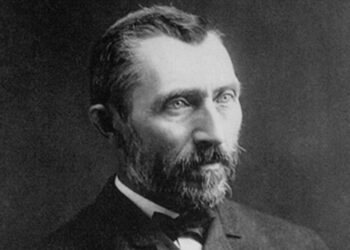Each year millions of students worldwide join universities and colleges heads held high, beaming with excitement and ambition as they step into what they believe will be a bright future. Well, the prospects of that future will be determined, largely, by one question: What career path to take? While some may have already had the advantage of receiving career guidance, a possible majority of others will face that question much later.
Ideally, that process should begin in the early years of post-primary education, but it is never too late to identify a career that one is suited for. There are as many careers to choose from as there are the disciplines available in tertiary institutions. Individual preferences are even more varied. So how does one go about identifying and choosing how they will spend the rest- or most of- their active adult life? There are 5 pointers (P’s) that form a useful compass when navigating the uncharted high seas of making a career choice.
Here are the 5 P’s to consider when choosing a career.
1. Passion
Passion is a strong desire that can get you to do amazing things. Finding what you are passionate about is a journey in itself. Do not be frustrated if you do not know yet. Keep trying new things. It will come even if you have to build it. Choosing a career that aligns with your passion is choosing a lifetime of occupational fulfilment. What if you know you have a passion for something, but you do nothing about it? This is the main problem with passion.
You can have all the passion in the world for something, but if you do nothing about it, you will never know what you are truly capable of. Start working on it now. Join that club, play that sport, be involved in that activity that drives your passion. Passion will make you wake up in the middle of the night to complete a task. Passion will make you say NO to distractions that are not aligned with your vision. Passion is the drive that will unlock your career. It is the fuel that will fire you up past all challenges along the way.
2. Performance
In addition to passion, one must perform academically well in the subjects that will lead to their dream career. You may be passionate about medicine but your performance in sciences especially Biology is very low. You may need to either work extra smart in that subject, or pursue another career option.
Remember universities and colleges will admit you on your grades first before they see how passionate you are about your career choice. Grades will sell you, but passion drives you. Find out which subjects support your career. Then commit to improving and excel in them. While career advisors may assist in identifying the subject prerequisites for your career, the onus is on you to attain the required grades for your career option.
3. Planning
Deciding on your career choice is not enough. You must decide how you will get there. The career-planning process allows you to identify your strengths and interests so that you can discover professional opportunities you are likely to enjoy and excel in. You first need to understand your needs, strengths, personality, skills, talents and interests to make informed academic and career decisions. It is imperative to start planning your career early. How early is too early? I believe that as early as one gets into formal schooling, one is already exposed to career planning.
4. Professional exposure
Some students know exactly what they want to do in life as far as careers are concerned. Some have no clue. The reason is that most students are not exposed to professionals in different areas. I always encourage parents and guardians to expose their children to their friends in different careers. Psychologically, children learn through observation and imitation. Exposure to different professions and careers arouses their interest. This can be done through job, or professional shadowing, internships, attending career talks, or just visiting different organizations.
5. Personality type
Why is a personality important in choosing a career? Learning your personality allows you to appreciate your emotions, behaviors, and thought patterns. For example, do you prefer to work alone, or do you prefer to work with others? Would you be content in a career that requires that you are extremely organized and have a set schedule? Or are you the type of person that likes to have an open, flexible schedule that allows you to be spontaneous? This information will assist you in deciding which career matches your personality preferences.


































































































































































































